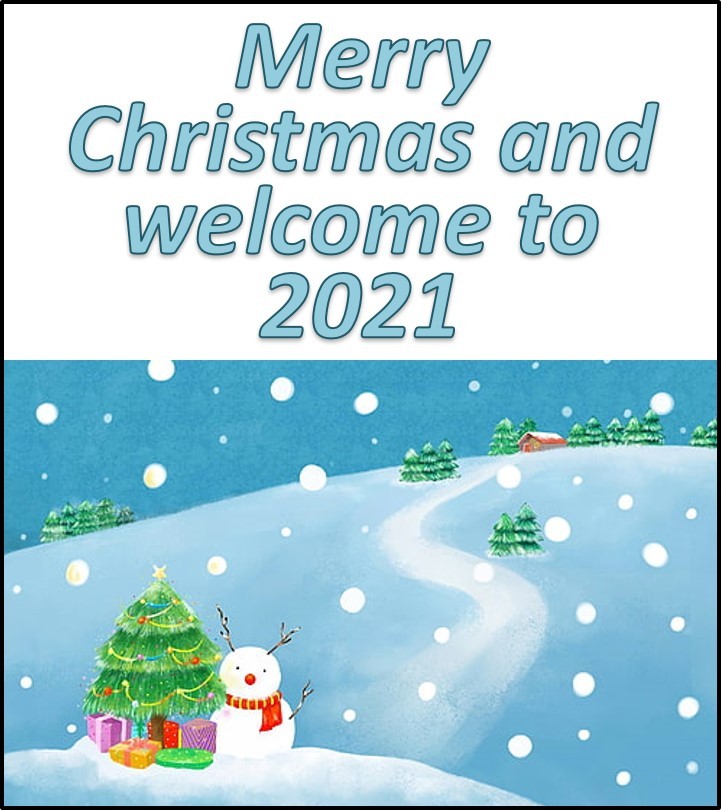2021, what we can look forward to

At the end of what has been a terrible year for many we wanted to send you all our best wishes for Christmas and a better 2021. As throughout the pandemic we are continuing to work (apart from a few days off over Christmas) and can confirm that RD&T is still very much open for business. The safety and wellbeing of our staff and customers is of our highest priority, so we have adopted all necessary social distancing measures and the site where we work is confirmed as a ‘COVID-Secure’ workplace. We are still open for testing and development work as usual.
Apart from the hope that mass vaccination will solve the COVID crisis, 2021 may prove to be significant for several other reasons. Very significant for the commercial refrigeration industry is the implementation of energy labelling and minimum energy performance standards (MEPS) which will be applied from March 2021. It is clear that whether the UK agrees a deal with Europe or not, labelling will be applied on 1 March. Whether the currently outlined rules for the UK will remain depend on what is agreed with Europe. There is a possibility that the UK may decide to remain aligned with Europe but could in the future diverge and even apply stricter standards.
2021 should also see the new version of EN23953 being available for comment. A small team of European experts is meeting regularly and is working on updates and clarifications. These include a number of new features such as water cooled condenser cabinets as well as updates such as how to test for refrigerants with glide. Also, many of the areas needing clarification and corrections are being tackled (for a full list of items being considered see: https://www.rdandt.co.uk/news/EN23953_update). Alongside this work many of the same team are also working to translate the EN standard to ISO level. This work also includes experts from the Southern hemisphere and America.
Work is also ongoing at European level to develop a standard for ice makers (Ice makers for commercial use - Classification, requirements and test conditions). Currently there is no European standard for ice makers and so this provides a methodology to compare performance of ice makers. RD&T have been involved in developing the test standard and can carry out the required testing. Currently the standard is being proposed as a new work item at ISO level and so it is likely that in the future a unified worldwide standard will be available.
2021 also sees reduction in F-gas quotas. Quotas will be reduced to 45% of the baseline in 2021. Again this is an EU regulation and the UK Government has said that EU F-gas and ODS regulations will no longer apply in GB from 1 January 2021. Northern Ireland will remain subject to EU F-gas and ODS regulations and systems as defined in the Protocol on Ireland and Northern Ireland. However, GB will continue to use the same schedule as the EU, but quotas and use will apply a new GB IT system. One of the main impacts is the already increasing costs for higher GWP refrigerants which will force refrigeration users to move to lower GWP alternatives. Use of low GWP but flammable refrigerants has been assisted by the increased charge allowances in IEC 60335-2-89:2019.
On another positive note, the importance of cooling, in regard to meeting climate targets, has moved up the agenda for not only the UK Government but also Worldwide. Historically there has been a lot of emphasis on heating and in the UK, degasification of heat. However, more recently Government and international bodies have been spending more time considering the future need for cooling driven by rising global temperatures and the future need for air conditioning driven by international development. UK Government (BEIS) has just published an energy white paper on ‘Powering our Net Zero Future’ (click here to download white paper). This is open for consultation (until 22 February 2021, click here to link to consultation) and allows interested parties to provide feedback to Government on financing and deployment of renewable technologies, and how this may change in the future.
If you would like further information on any of the above items the please contact Judith Evans at RD&T (j.a.evans@rdandt.co.uk).